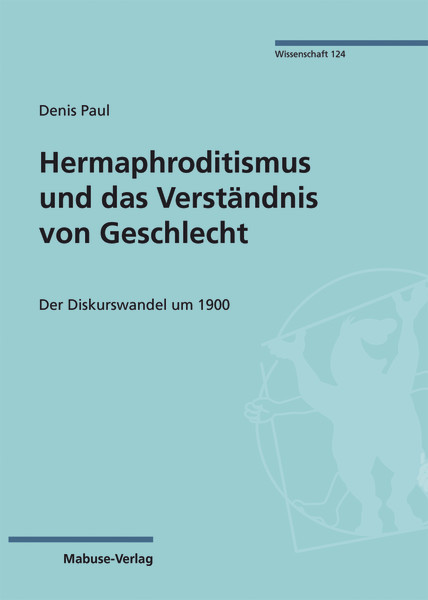Outside the bipolar framework of gender – When concepts of hermaphroditism helped shape perceptions of the "norm"
Denis Paul: Hermaphroditismus und das Verständnis von Geschlecht. Der Diskurswandel um 1900. Mabuse-Verlag. 2021.
DOI:
https://doi.org/10.17169/ogj.2022.198Keywords:
Androgyny, Hermaphroditism, Intersexuality, MedicineAbstract
In this publication, Denis Paul researches discourses on the phenomenon of hermaphroditism in the German-speaking world. The time horizon studied ranges from 1870 to the 1930s. Tracing research paradigms of different medical and scientific disciplines as well as legal frameworks brings to light areas of tension on the question of who can have a say in determining one's sex. Paul makes it clear that the naturalisation of medicine in the 19th century sometimes led to a replacement of the prevailing norm-abnorm scheme. In the course of this, the phenomenon of hermaphroditism began to take on an essential role in the question of gender around 1900, and even became a theoretical starting point for stabilising the two-sex order at the beginning of the 20th century, which was experienced as precarious.
References
Butler, Judith (1991): Das Unbehagen der Geschlechter. Frankfurt am Main: Suhrkamp.
Klöppel, Ulrike (2010): XXoXY ungelöst. Hermaphroditismus, Sex und Gender in der deutschen Medizin. Eine historische Studie zur Intersexualität. Bielefeld: transcript. doi: 10.1515/9783839413432.
Latour, Bruno (2002): Die Hoffnung der Pandora. Untersuchungen zur Wirklichkeit der Wissenschaft. Frankfurt am Main: Suhrkamp.

Downloads
Published
How to Cite
License
All contributions in Open Gender Journal are published under the Creative Commons Attribution 4.0 International license. You may freely make use of the corresponding texts in accordance to the conditions of the license (License contract, generally understandable version). There is no exclusive transfer of usage rights ("copyright transfer"). Open Gender Journal does not charge authors any costs for publication (so-called Article Processing Charges, APC) or submission (so-called Submission Charges). Authors are encouraged to share their contributions in other places, such as repositories.












